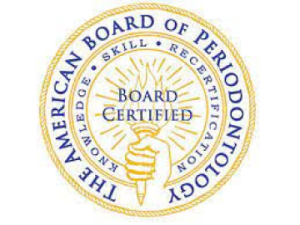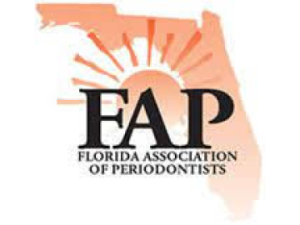Periodontal disease (gum disease) is common in Boynton Beach and beyond. This infection affects teeth tissues, leading to gum and bone damage, potentially resulting in tooth loss. Early detection and treatment are vital for managing this slow-developing disease effectively.
Understanding What Periodontal Disease Is
Periodontal disease is primarily caused by a bacterial infection in the mouth. Harmful kinds of bacteria can thrive if oral hygiene is neglected, leading to plaque buildup. When not removed through brushing and flossing, plaque hardens into tartar, irritating gums and creating pockets for bacterial growth. This inflammation and infection define periodontal disease, ranging from mild gingivitis to severe periodontitis that may result in tooth loss. Early detection of warning signs is crucial for timely treatment and maintaining oral health.
Identifying the Early Signs and Symptoms
Periodontal disease may not cause pain initially, making it easy to miss signs. Pay attention to your mouth’s health and see a dentist if you notice the most common symptoms of gum disease such as red, swollen, or tender gums, bleeding gums, or persistent bad breath. Early detection helps manage gum disease effectively.
Risk Factors Contributing to Periodontal Disease
Poor oral hygiene is the leading cause of periodontal disease. Hormonal changes, along with lifestyle choices, family history, and health conditions, can also increase your risk. Knowing these factors helps you reduce risks and focus on oral health.
Lifestyle Choices That Increase Risk
Smoking increases the risk of gum disease by weakening the immune system and reducing blood flow to the gums, hindering healing. Inadequate essential nutrients and a diet high in sugary drinks and processed foods can also raise the risk of gum disease. Changes in hormones due to puberty, pregnancy, and menopause can increase gum sensitivity and necessitate extra oral hygiene care.
Genetic and Health Conditions Influencing Periodontal Disease
Genetics and health conditions like diabetes can increase your risk of gum disease. Family history and immune responses may play a role, while diabetes can weaken your body’s ability to fight infections. Additionally, there might be a link between gum disease and heart problems due to inflammation.
The Importance of Early Detection
Early detection is critical to stop gum disease from worsening and causing permanent damage.
Regular dental checkups are key for early detection. During these visits, your dentist can spot any signs of gum disease early on. They will also look at your risk factors and suggest ways to maintain your oral health.
Regular Dental Check-Ups: Your First Line of Defense
Establishing a dental care routine is vital for managing gum disease. Visiting your dentist twice yearly for check-ups is recommended, even with good home care. Early detection allows for simpler treatments, preserving natural teeth and ensuring long-term oral health.
What Happens During a Periodontal Examination?
A periodontal examination is painless and crucial during routine dental checkups. Using a periodontal probe, your dentist assesses gum health by measuring pocket depth around your teeth. Here’s a summary:
| Pocket Depth (mm) | Gum Health Status |
| 1-3 | Healthy |
| 4-5 | Possible Gingivitis |
| 6 or more | Periodontitis |
Effective Prevention Strategies for Boynton Beach Residents
You can prevent periodontal disease by maintaining good oral hygiene and making lifestyle changes. Here are some tips for Boynton Beach residents to maintain excellent oral health and a bright smile for years.
Daily Oral Hygiene Practices to Prevent Gum Disease
Maintaining good oral hygiene is crucial for overall health, not just a bright smile. It starts with daily brushing and flossing. Brush at least twice daily with fluoride toothpaste and a soft-bristled brush for two minutes. Ensure to reach all tooth surfaces and the gum line. Floss daily using gentle up-and-down motions to remove food particles and plaque between teeth. Curve the floss around each tooth base for thorough cleaning.
The Role of Professional Dental Care in Prevention
Regular professional dental care is essential to maintain good oral hygiene to prevent gum disease. Despite diligent home care, some areas in your mouth require professional attention. During check-ups, your dentist will remove plaque and tartar through scaling and polishing, ensuring thorough cleaning. Visiting every six months allows for early detection of gum disease and prompt treatment. Preventing issues is key to optimal oral health.
Modern Treatment Options Available in Boynton Beach
The field of dentistry has improved a lot in treating gum disease. There are many treatment options available that are designed for the needs of each patient. The choices depend on how severe your condition is. In the early stages, you might have non-surgical procedures. More advanced cases could need surgical treatment.
Whether you are facing the early signs of gum disease or need a more serious approach, you can trust that Boynton Beach has good periodontists. They provide complete options to help restore your oral health.
Non-Surgical Treatments for Managing Early Stages
When doctors find periodontal disease early, like gingivitis or mild periodontitis, non-surgical treatments can often help. These treatments control the infection and stop more damage.
Scaling and root planing is a common non-surgical option. Using special tools, this procedure cleans the teeth well, both above and below the gum line. Scaling removes plaque and tartar. Root planing smooths rough areas on the tooth roots. This makes it harder for bacteria to stick.
Sometimes, your dentist may suggest extra treatments. These can include antimicrobial mouthwashes or topical antibiotics. These help reduce bacteria and help healing.
Surgical Options for Advanced Periodontal Disease
When periodontal disease gets worse, it can lead to serious bone loss. Surgery may be needed in this case to help restore lost tissue and fix the teeth.
One type of surgery is pocket reduction surgery. This procedure lifts the gums to reach the tooth roots. It helps to remove infected tissue and deposits of tartar. If there is a lot of bone loss, bone grafting may be suggested. In this procedure, bone grafting material—either natural or synthetic—is placed where the bone is lost. This helps to encourage new bone growth.
Another option is guided tissue regeneration. This surgery uses membranes to help new gum tissue and bone grow in areas affected by periodontal disease.
Schedule an Appointment with Palm Beach Periodontics
If you’re experiencing symptoms of periodontal disease, don’t delay. Get in touch with Palm Beach Periodontics by phone or online to set up your appointment and find a treatment plan that works for you.












